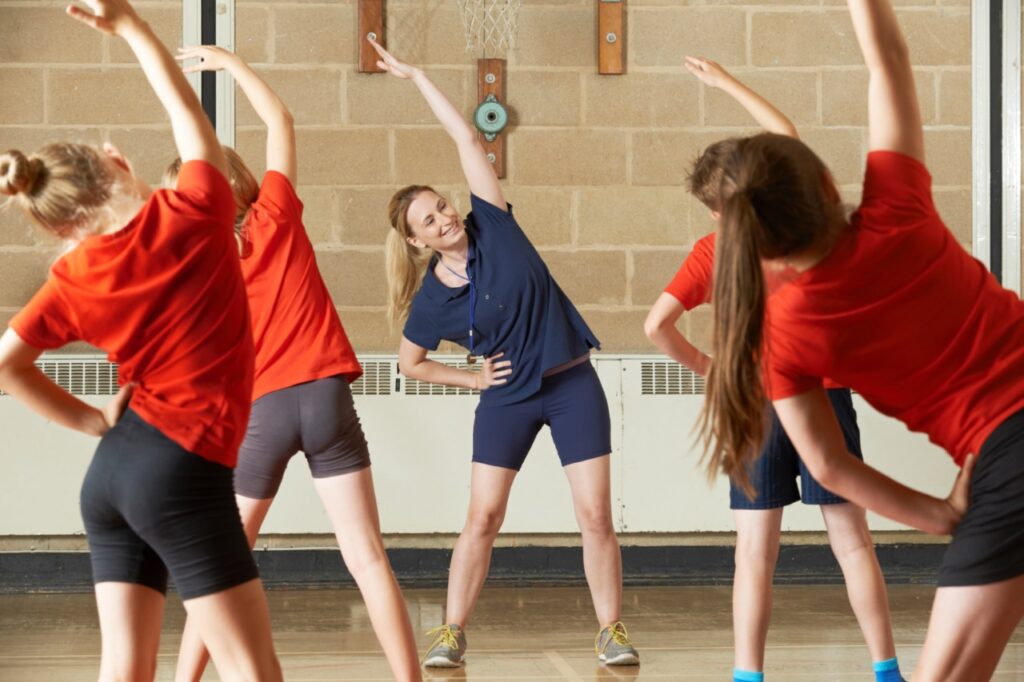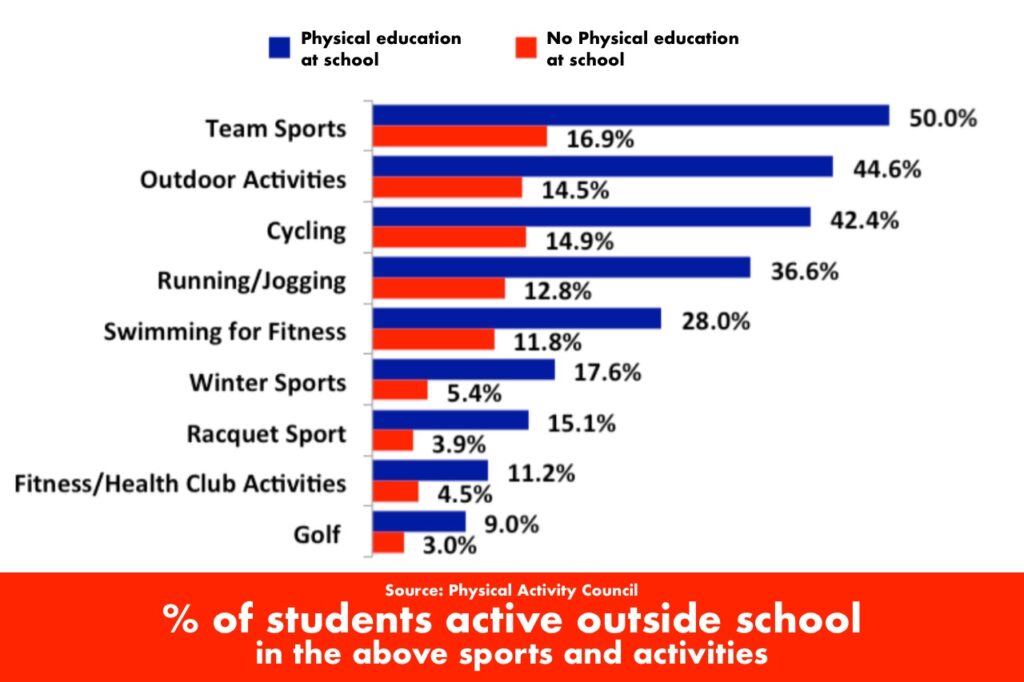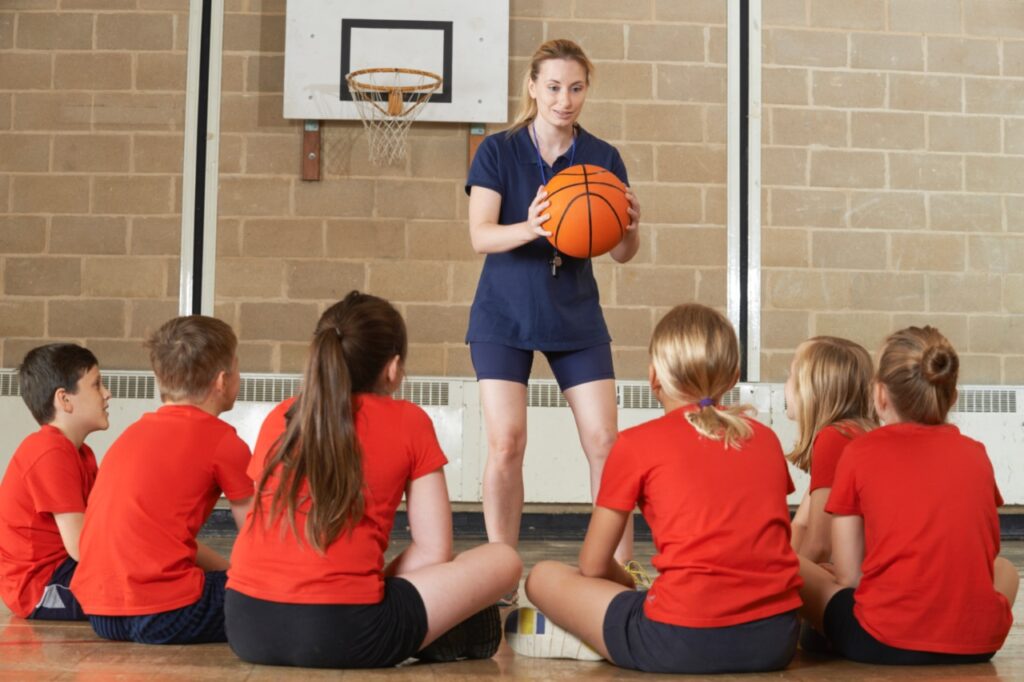Often people interpret physical education as playing a sport, running around a track, or other physical activities, but it involves much more than that. Physical education helps achieve a balanced lifestyle through improving physical and mental health. Today, obesity is a matter of concern, especially among young people. An unhealthy lifestyle is a primary cause of obesity. Therefore, keep motivating children to participate in physical activities because they need a fitness mindset to live a healthy and active lifestyle. Nowadays, academic institutions have forgotten the importance of physical education, instead mainly focusing on academic scores and leaving no place for physical education. As if they are preparing their students to survive the college and workplace life only, completely neglecting their physical and mental health. The exponential growth of physical inactivity has brought many health risks across the globe because the importance of physical education is constantly declining worldwide. Therefore, World Health Organisation described the current situation as a pandemic.
So, what’s the need and importance of physical education in our lives.
Why Physical Education Is Important
A great deal of difference comes up between physically active and inactive students to adults. Physical education takes students away from smartphones and video games. Those who have undergone physical education are more physically agile than twice those who didn’t, suggest research. Here are the following benefits of physical education for students:
Healthy body
Make sure lessons in physical education are according to various age groups. Activity planning shouldn’t swamp the students. Very advanced skills or requirements should be in the curriculum. Instead, physical education instructors should know when to push their students to do better. They can help students improve physical strength and stamina through physical education, especially at young ages. It enhances students’ motor development and needs, allowing them to stay fit outside school. Moreover, it helps them create a fitness mindset and understand the importance of exercise. Physical education reduces the risk of obesity, heart disease, and diabetes. In addition, regular physical activity reduces the chances of a few common cancers: The cancers of bladder, breast, kidney, lung, stomach, colon, endometrium, and esophagus. Cancer patients can do regular exercise to stay fit and live a better lifestyle. Students acquire various essential skills through physical education. PE teachers can teach students the importance of physical education during school hours. In addition, students learn about their body parts and care. Thus, they can take care of themselves and their teammates.
Healthy brain
Moderate to intense physical activity is vital for our brain and mental health. In addition, it enhances the cognitive development of children aged 6 to 13 years and reduces general anxiety disorder in adults. Thus, you build a fitness mindset in students, and they do exercises to live a healthy and active life. Several studies show physically inactive and lazy children have a high risk of sleep disorders. Conversely, physically active children have healthy sleep patterns and thus respond better to stress and anxiety. In addition, they gain better immune system functioning, good mental health, and social well-being.
Nourishment and a healthy diet
Another benefit of physical education is students learn about a healthy and balanced diet. So they eat healthy food to gain energy for their sports. No educator can deny the importance of a healthy diet and complete nutrition for school-going children. Physical education helps children understand what they should eat and avoid in their meals. Growing children need nourishment, so they must take a healthy diet and know how it befits their health. Moreover, they learn about nutrition guidelines that help them plan healthy and nutrient-rich diets accordingly.
Better academic performance
Physical education helps in achieving better academic results. Children forget their stress after playing their favorite outdoor game. Students who play sports are more likely to stay on good behavior, never lose focus in class, and be disciplined. They can control complex emotions through physical education, sports, and physical activities and relax their minds to attain calmness. Most physical exercises that students do in their schools expect a higher concentration level, which improves good behavior and studies. In addition, this concentration power helps them obtain good grades in academics and medals in sports. After all, a healthy mind lives in a healthy body.
High stamina
A physically inactive child might be a victim of functional limitations. He can be slow in performing his daily routine work, playing with other children, climbing upstairs, jumping, or running. Stay physically active to avoid your functional limitations. Unfortunately, middle-aged and older people have a high risk of such functional limitations. Poor nutrition may result in low bone density and high fracture risk. On the other hand, exercise can help improve physical work and diminish the dangers of falls. Aerobics, stretching, running, warming up, and muscle strengthening are some physical exercises that anyone can do. Any physical exercise requires professional training, so we recommend joining a physical training program for exclusive benefits. Proper guidance from a coach will help students to grow and learn faster.
Prosocial behavior
Students earn a sense of team spirit, cooperation, and identity through physical education at a young age. They learn to adjust and adapt quickly to any diverse environment. A sense of responsibility develops for other team members. Educating prosocial behaviors to students benefits developing healthy interactions and relationships. In addition, students learn social and communication skills, which enhances their overall personality. Peer relationships are pretty influential during the adolescence period. Hence, acquiring the basics of popular sports helps them fit within the same age groups. Furthermore, mastering more than one sport develops their overall personality. So, they think outside the box, outside their classroom, and pursue their passions. As a result, they find better opportunities to make their careers in one of these sports. So, working upon essential skills required to pursue their real passion within the sporting industry.
Self-esteem
Being a part of team sports substantiates leadership qualities and sportsmanship in a well-structured setting. In addition, after playing different team roles, they gain new skills and learn to respect their peers. Thus, a sense of kindness, understanding, and support helps them cooperate with other players. A handshake, a high five from another teammate, and a pat on the back are a few gestures that build confidence and team spirit. Likewise, appreciation from coaches and team members brings satisfaction and self-esteem. All this helps children believe they can improve their aptitudes and capacities to do better in the field. Students understand the mindset of self-esteem is independent of results, winning or losing. Participation in a game, being a part of the team, and learning something new should be their objective. Learning from every win or loss is very important. Constructive criticism makes room for improvement for our little players, whether in sports or academics.
Ethical traits
Individual and team sports enhance children’s innate abilities. They learn self-discipline and become goal-oriented. They understand that winning or losing is only a part of the game and can’t win every time. So there should not be a place for any discomfort or discouragement. Irrespective of the disappointing result, they take charge and encourage team members to maintain team spirit. Disputes and arguments regularly emerge in sports, and only following work ethics can diminish them. The vital part of any sport is discipline, whether mental or physical, depending upon the situation. Students must follow the sport’s rules, coach’s guidelines, and referee’s decisions. As a player, they learn to accept an occasionally wrong decision of an umpire. Which they usually do not approve of. Such inconvenient situations help them learn patience, understanding, and discipline, which benefits them for the rest of their lives. Thus, sports develop qualities of volunteering, leadership, teamwork, compassion, and goodwill among our children.
Refreshment
Taking breaks from study and regular work is necessary. Even we cool down a machine to prevent any failure. Thus, our children need a break from their studies. Humans or machines are all vulnerable to this repetitiveness, especially young minds. Students focusing only on academics require multiple breaks during their school hours. These young minds can reduce their stress through physical education. They can also refresh their minds and burn up the excess vitality causing boredom. Sports and other activities make students more attentive and minimize chaos in the classroom.
Live longer
We have to adopt a healthy lifestyle to increase our lifespan. Even moderate exercise can change your life completely. For example, those who walk daily have fewer chances of premature death. So, how many steps are sufficient for children, adolescents, adults, and older people.
Children: 14000-15000 steps per day Adolescents: Boys: 13000-15000 steps & Girls 11000-12000 steps per day Adults: 8000-10000 steps per day Older: 6000-8000 steps per day
Everybody can have a healthy lifestyle and live longer. Only do regular exercise and walk steps given above.
What is the importance of physical education?
Physical education is important in many ways-
Better physical health Better brain health Proper nourishment Better academic performance and grades High stamina for day-to-day activities Prosocial behavior for a better life Feeling of self-esteem Ethical traits to respect decisions Refreshment break to revive energy Live a long and healthy life
What is the importance of physical education in our life?
Students who receive physical education –
Have a healthy body and brain. Score better during school days. Have a healthy lifestyle throughout life. Fight back against the disease. Mostly live longer. Have better prosocial skills to manage the team. Take a healthy diet to stay active and energized. Respect themselves and their peers. Know all the ethical traits. Easily succeed in any area of life.
How does physical education help in our daily lives?
People who do exercise are physically active. Physically active people have better stamina. Stamina gives you the ability to complete physical tasks quickly. These people understand the importance of health and take a nutrient-rich diet to gain energy and stay away from diseases. Physical education teaches anger and stress management. These qualities help children succeed later in their lives.
Final Words
Now, you know how important is physical education, but the patterns around the world are exasperating. Therefore, schools must take physical education seriously. Teachers, parents, and students should understand the importance of physical education. Almost 50% of the schools in the USA don’t take physical education and cut off recess and sports periods. Their average budget for physical education is $764 per year. Thus, our children might be victims of functional limits due to a lack of quality physical education in schools. Students who do less physical activities are at high health risks. So the cases of adolescent and teenage death and injury are rising high. In addition, children might have bad eating habits and violent behaviors, and tobacco, drug, and liquor addiction. Physical education keeps them away from these deadly habits. A daily walk for twenty minutes stimulates the mind. As a result, these students perform better academically because their brains function better comparatively. They also stay active during school hours and outside the campus. Most people think physical education is a waste of time. This mentality needs to change. Exercise directly affects our brain. Regular exercise builds the brain cells and lets us control heart rates. After that, we can maintain the mood swing, manage stress, hone our talent, and work efficiently. After reading this article, we all know – why is physical education a student’s most important subject. Do you have your opinion about this article? Kindly let us know through your comment.


